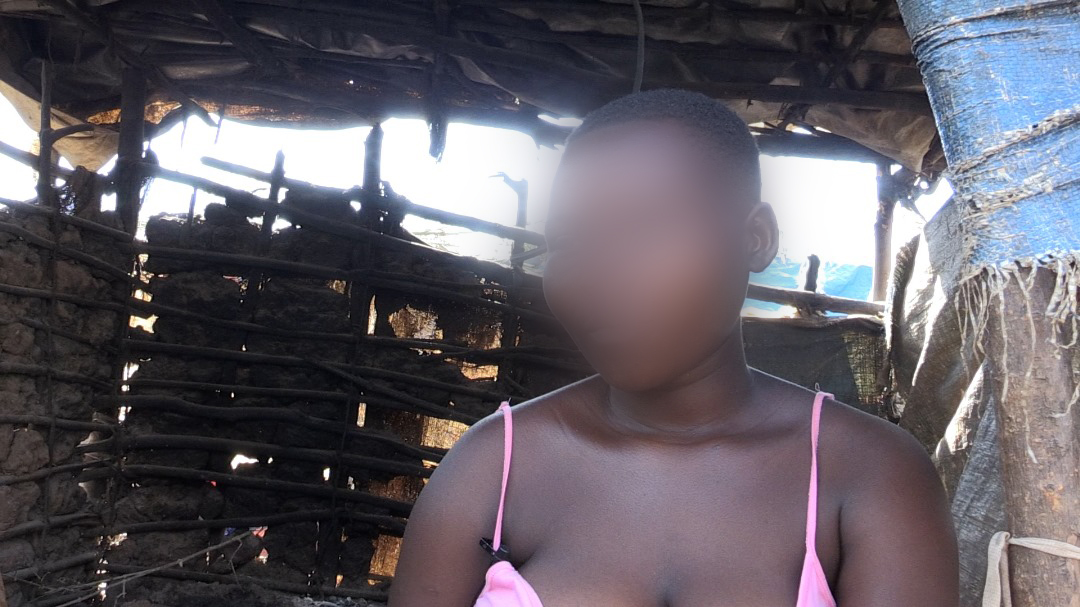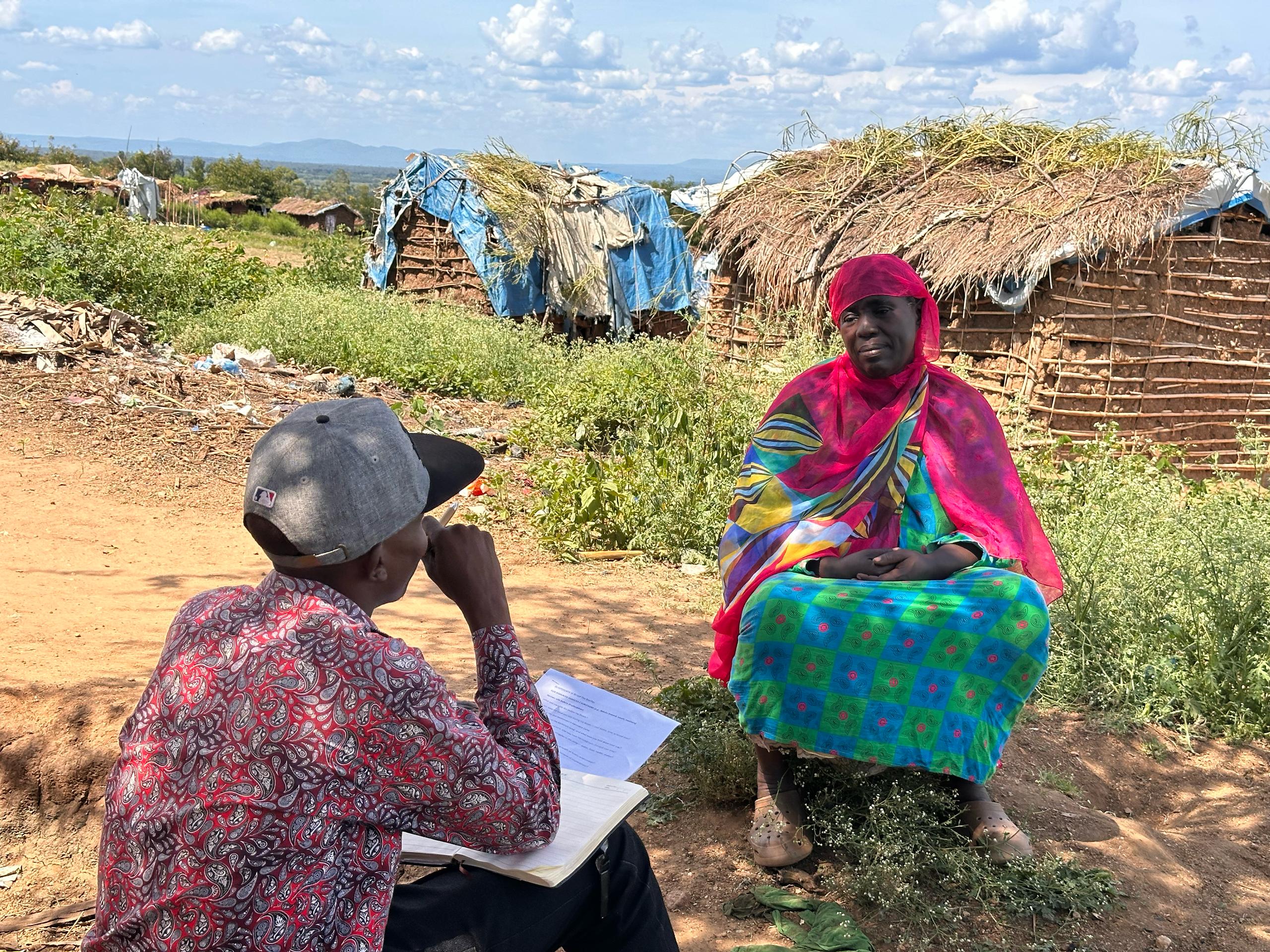BY INNOCENT KIIZA
Asiimwa Jackline (not real name), a sixteen-year-old girl, watched helplessly as her family, their four roomed house, livestock, and garden were swept away by a flood. This flood was one that was caused by the Nyamwamba River valley on the morning of December 18, 2020.
Asiimwa, the bright student with dreams of becoming a nurse, saw them shatter in front of her when she, and many that were affected by the same shortcoming were relocated to Muhokya camp.
The heavy floods, fueled by changing weather patterns and melting glaciers from the Rwenzori mountains, had carved through villages, demolishing homes and people’s livelihoods. She now reminisces of the life she had, her family, their farm, they even had a television.
“My father used to provide whatever we needed at home. He would also make sure we had everything we needed before he would take us to boarding school and my siblings,” she recalls.
Jackline (not real name), yet another victim to the flood, says life changed after the disastrous night. This pushed her father into depression, school fees became challenge and eventually, her and her siblings had to drop out of school.
When Kasese district relocated each and every body who was affected by floods to an IDP camp, she knew life would never be the same.
“I thought we are to settle in camp for a short time but then our father told us that everything we had was washed away and that the camp is our new home. I knew better than stress him anymore,” she says.
After dropping out of school due to financial hardship, Jackline got pregnant over just Shs5, 000 a boy promised to but sanitary pads that she would not be able to use for the following year. The boy abandoned her too after she got pregnant.
“I did not want my father to die of stress. So I started to look for ways of getting small thing like sanitary pads for girl but I did not know that it could lead to teenage pregnancy,” she quietly says.

Her dream too was to become a nurse, to treat the nation and become a woman of value to her community and country.
She lost her aspirations when that fateful night left them in a displacement camp. She has since trained as a hairdresser through a community initiative, but without startup capital, her dream of opening a salon still remains just that a dream.
Janet Mbambu’s story, though different from the first two, also emanated from the flood, culminating into a teenage pregnancy. The difference is that she went into a marriage, young as she was. She tears down as she narrates the story of when she lost her father in the flood back in Primary five at Bulembia primary school in Kilembe.
Since her mother could not afford scholastic materials and school in general, she dropped out. When she got pregnant at 15, it rubbed her mother the wrong way, and she had to go liv with the child’s father, who was also a teenager.
Living with a new family caused her fatigue as new mother since not much help was accorded her in terms of diet among other things.
Situation worsened as her new family members started a conflict over family property and she had to return to hr mother.
Mbambu’s mother says that her daughter becoming a teen mother was like a hurtful history repeating itself because she also got pregnant with her at 16. She had sworn it would never happen to her child but the inevitable is inevitable.
“I was so disappointed when my fate befell my daughter. I had high hopes for her and that is why I enrolled her in school that after completing she can also help others” she said.
Parish Development Model, emyooga
Rehema Aryema Namale, the Muhokya camp’s chairperson said they were promised six months in the camp. “We registered with the Office of the Prime Minister. We got blue cards. But it has been five years,” she said.
Like many, she cannot access government programs such as the Parish Development Model or Emyooga, because she no longer resides in her original community. “They say join groups from our villages but our villages are gone,” she said.

Like many, she cannot access government programs such as the Parish Development Model or Emyooga, because she no longer resides in her original community. “They say join groups from our villages but our villages are gone,” she said.
Rehema worries deeply about young girls in the camp, many of whom have fallen into transactional relationships with fishermen. Parents are no longer caring for the young ones, she says, rather, they are after getting sugar or food for the day. “We were promised two hectares per household. If that had happened, parents could farm and protect their daughters,” she said.
The camp general secretary Jockus Bawithe said that since their displacement, the desperation has led to exploitation. At least six underage girls in the camp have been impregnated and abandoned, many lured with small gifts or fish from traders who later vanish.
Saving the young mothers
The Kasese District community based Officer, Queen Gonda Asiimwe, says most of the causes of the teenage pregnancies is result of violence in families, where parents start neglecting their children and their roles. She added that most cases of teenage mothers are those from families that had young mothers before and were also affected.
She says strategy should be changed from response to elimination strategy if the challenge of teen mothers and pregnancies is to be controlled.
Worrying cases
As government we focus much on response after the occasions and forget to eliminate the problem before it multiplies. In 2013, Uganda was ranked 16 among 25 countries with the highest rate of children who get married at tender age.
The in-charge Kasese municipal Health centre, James Mwiruwabo, said that frequent cases of teenage mothers coming to deliver with those ages 14-17 dominating come from sub counties around. These stay with relatives as they wait for delivery. “Most are accompanied by their young grandmothers and they come unready, which gives nurses a hard time. Most of the teenage mothers are by worse defiled by relatives,” Mwiruwabo said.
According to the Rwenzori East division spokesperson, Sp Nelson Tumushime, Kasese central police station, just last year, registered 114 sexual gender based violence cases where 2 were rape,38 aggravated defilement, 72 simple defilment,2 indecent assault and 53 are in court, 51 still under investigation and 10 were under prosecution.
Most of these cases lack concrete evidence and this hinder prosecution, while others are negotiated within families.
Ronald Kato, executive director of the Kasese youth link Development, says Munkunyu sub county in Bukonzo East constituency, teenage pregnancies is mainly driven by poverty among families.
“If one has a daughter and it happens that she has been impregnated, that person thinks of getting dowry without bothering about the education and future of the child,” Kato says. Some families, she adds, look at a girl child as an exchange of goats and material gains, leaving educating hanging in balance.
About Kasese Youth Link Development
Kasese Youth Link Development (KYLD) is community based organization started by youth in 2013 after realizing that efforts of youth to combat early marriages among children, orphans and other disadvantages groups of people like internal displaced people who live in the community to grow up in good health condition and acquire basic needs skills to enable them live more successful life in the community and partner with UK AID, UGANET, Reach a hand, Caritas and Justice center.
KYLD has trained 191 in apprenticeship training and 2092 adolescent 14-24 years has acquired psychosocial support male 716 and female 1376 youth under catering department have initiated income generating projects to empower the young mothers and fathers.
Safe space and local health clinics run by international organization such as the un population fund(UNFPA) are the only place of refuge for survivors.
This violence takes a toll at a global level, too. Studies shows the estimated cost of violence is somewhere between one and two percent of gross domestic product (GDP), ending violence against women is essential to achieving gender equality, one of the sustainable Development Goals.
Uganda has one of the highest teenage pregnancies rate in sub- Saharan Africa. According to most recent Uganda Demographic and Health survey , 24%of adolescent girl aged 15 to 19were pregnant or had already given birth as of last year
“Our constitution defines anyone under 18 years as a child, yet we see girls becoming pregnant at much younger ages. We cannot deny any one service to 10-17 years old who seek antennal care. In our health system, antenatal service is provided to any one regardless of age,” Mwiruwabo said.